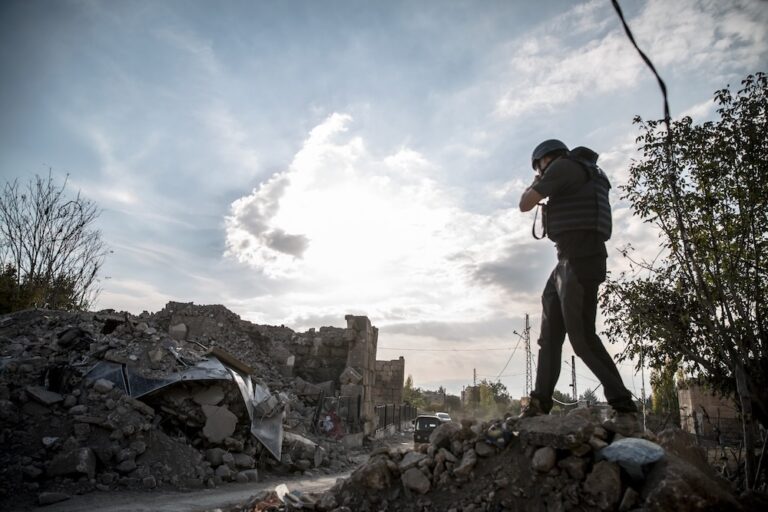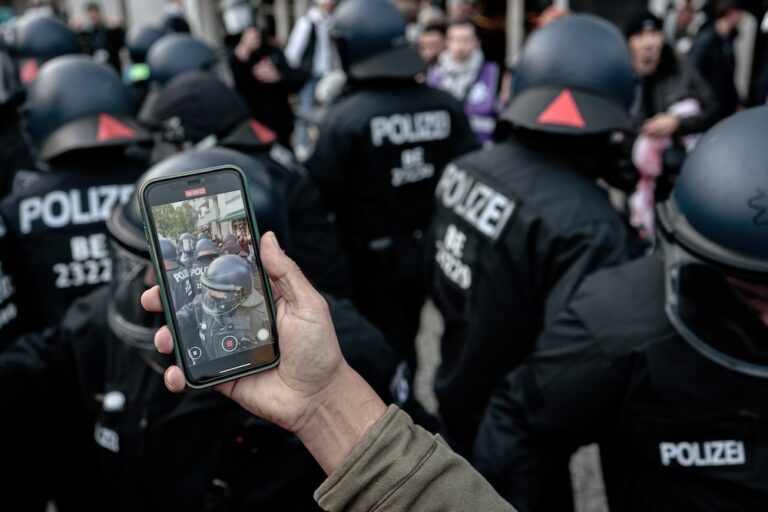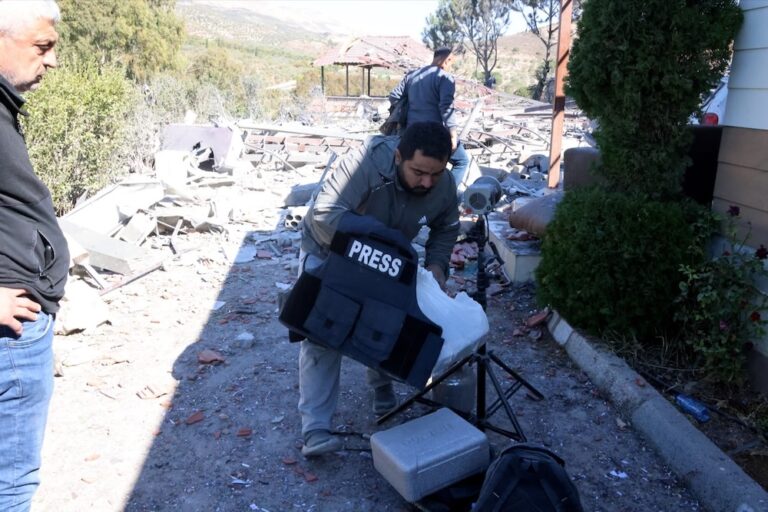(ARTICLE 19/IFEX) – ARTICLE 19 has condemned Israelâs heavy censorship regime, the day before the government appears before the United Nations Human Rights Committee to explain how it is upholding its international obligations, including its citizensâ right to freedom of expression. Frances DâSouza, Executive Director of ARTICLE 19 said: “The Israeli government interprets national security […]
(ARTICLE 19/IFEX) – ARTICLE 19 has condemned Israelâs heavy censorship
regime, the day before the government appears before the United Nations
Human Rights Committee to explain how it is upholding its international
obligations, including its citizensâ right to freedom of expression.
Frances DâSouza, Executive Director of ARTICLE 19 said:
“The Israeli government interprets national security interests far too
broadly, using them as an excuse for heavy censorship, both in Israel and
the Occupied Territories.
“The lack of free debate and dearth of official information about the
security situation takes a heavy toll on informed debate and leaves the door
to prejudice and violence wide open”, she added.
ARTICLE 19 is alarmed that the Israeli, Palestinian and foreign media are
compelled to exercise self-censorship on the basis of âvoluntaryâ Censorship
Agreements, last revised in 1996. Running parallel to this code are the even
more draconian Defence (Emergency) Regulations of 1945, which allow for
summary closure of publications and restrictions on distribution, among
other controls.
The Israeli media attempt to circumvent the Censorship Agreements by citing
or quoting reports published abroad. However, this obviously undermines the
ability to produce news which is current and may also be censored, as in
1997, when the Israeli press was prevented from covering the failed
assassination attempt in Jordan by Mossad on Hamas official Khaled Meshaâal
even though the information was available in the foreign media.
Journalists have been subject to physical attack by Israeli security
personnel. For example, in March 1998, eight Palestinian journalists were
shot at close range by Israeli Defence Force solders (see IFEX alert of 17
March 1998). None of the soldiers have been prosecuted.
There is an urgent need for Israel to implement institutional reforms to
safeguard press freedom and ensure access to information. This involves not
only introducing new legislation, but abolishing laws and regulations which
are incompatible with international standards.


